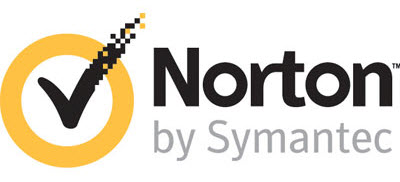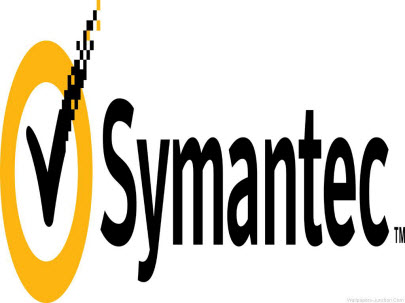 Symantec, the pioneering security company behind the Norton anti-virus software, is looking to change direction. Brian Dye, Symantec’s senior vice president for information security, told the Wall Street Journal… “Antivirus is dead. We don’t think of antivirus as a moneymaker in any way.”
Symantec, the pioneering security company behind the Norton anti-virus software, is looking to change direction. Brian Dye, Symantec’s senior vice president for information security, told the Wall Street Journal… “Antivirus is dead. We don’t think of antivirus as a moneymaker in any way.”
In an interview that is almost certain to prove embarrassing for the Norton team, Mr. Dye went on to state that modern antivirus solutions prevent only around 45% of attacks on computer systems, the implication being that the majority (55%) get through regardless. Perhaps Norton should consider reducing its prices accordingly – if it only works half the time, half the price would seem reasonable. Considering sales of anti-virus and similar security products currently account for 40% of Symantec’s total revenue, it is a somewhat surprising admission.
According to the Wall Street Journal story; in future, Symantec will be concentrating on a business orientated identification and remedial approach rather than prevention.
Antivirus products aim to prevent hackers from getting into a computer. But hackers often get in anyway these days. So Mr. Dye is leading a reinvention effort at Symantec that reflects a broader shift in the $70 billion a year cybersecurity industry. Rather than fighting to keep the bad guys out, new technologies from an array of companies assume hackers get in so aim to spot them and minimize the damage.
So, Symantec’s new emphasis will see the company specializing in made-to-order enterprise solutions. Competitor security companies moved in this direction some time ago, and Mr. Dye acknowledged that Symantec is late to the fray… “it was galling to watch other security companies surge ahead. It’s one thing to sit there and get frustrated. It’s another thing to act on it, go get your act together and go play the game you should have been playing in the first place.”
 It’s important to note that Mr. Dye also asserted that Symantec has no plans to abandon Norton, but… “will find revenue growth in its new product lines. If customers are shifting from protect to detect and respond, the growth is going to come from detect and respond.”
It’s important to note that Mr. Dye also asserted that Symantec has no plans to abandon Norton, but… “will find revenue growth in its new product lines. If customers are shifting from protect to detect and respond, the growth is going to come from detect and respond.”
Three different CEOs in less than two years is certainly indicative of a troubled company. In 2013, former CEO Steve Bennett announced a major restructuring (AKA cutting jobs), in an effort to reduce overheads and increase profitability, concluding “Our system is just broken.” While that strategy apparently improved the bottom line, it doesn’t appear to have impacted similarly on revenue. So, it’s hardly surprising that Symantec would be looking at new directions.
Is anti-virus really dead? Of course it isn’t. While anti-virus on its own may be fighting an uphill battle in today’s environment of burgeoning cybercrime and associated malware, it remains an integral part of a layered security approach that starts between every user’s ears. Indeed, one has to wonder if these types of statements would still have been forthcoming had Symantec’s shift in emphasis not been on the agenda.
<source>

Norton never could find it’s own @ss with both hands after Symantec took over.I’ve seen far too many infected PCs running a Symantec program as it’s primary defense.Maybe they will just pack it up and go away……would save them that yearly check they write to CNET for the stellar reviews…win win.
I do agree with the premise of the article,and input from Kaspersky as well.Just strikes me as being so damn funny that Symantec spoke up on the subject.
Definitely ironic chuck, I agree.
Thanks for your comments,
Cheers… Jim
Looks like Norton is going like the “French” ( hands up when the Germans stormed in). They should be strong and fight the evil hackers and the bad gremlins of our electronic world.
Hello Jim. If you think about, it makes total sense for Norton to drop from the Antivirus program. Time to come clean and inform users that their product is NOT as affective as stated (by those who get a kick-back), and allow those other companies who are more proficient in dealing with viruses, do so, Mindblower!
I agree MB. The once ubiquitous Norton has seriously fallen from grace these days, with home users anyway.
At one time, a long, long time ago, Norton was one of the most coveted suite of utilities you could get your virtual hands on. Then, Symantec bought the company and it went to Hell in a handbag. There was a period where mismanagement of the product allowed the antivirus program to become a slow, bloated liability on any PC. It was an embarrassment. They reworked the code and made it a better program, but the image and goodwill from the old days never recovered. Norton has only themselves to blame for their lack of position in the antivirus world, and the image of the brand among people who know what they’re talking about. Norton is not worth, and never has been worth the retail price they place on their product.
To regain any real confidence and trust in the brand, they’re going to have to innovate, or do something pretty special. Otherwise, they’ll be remembered only as a “has been.”
Had a bad experience 10 years ago where my gateway computer got hit, then eventually 5 network computers and even 2 ext drives went down. If it wasn’t for an image backup on another ext drive not connected, then I would be in serious trouble. I was using freebies back then… Avir and zone alarm, that failed to protect me, so I took the advice from a friend and installed Spyware Doctor. That cost me $50 a year but totally saved my butt for the next 10 years until they sold out to Norton a while back. To date, still no infections. I say thanks to both SD and Norton for many years of safe puting.
The problem isn’t that Antiviruses don’t work, they just don’t work on their own. Antiviruses are not perfect and will miss stuff, so users need to remember this. However people still today think that having a security suite means they are fully safe and take too many risks. Although saying that, I found Norton to be very bad at detecting in general anyways and as people have mentioned they never recovered their image after making their product very bloated.